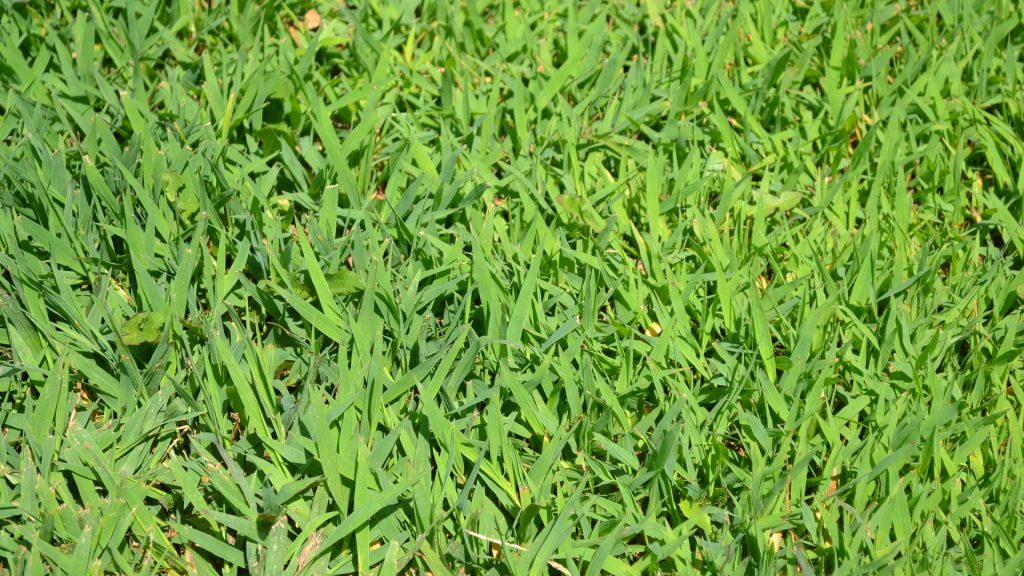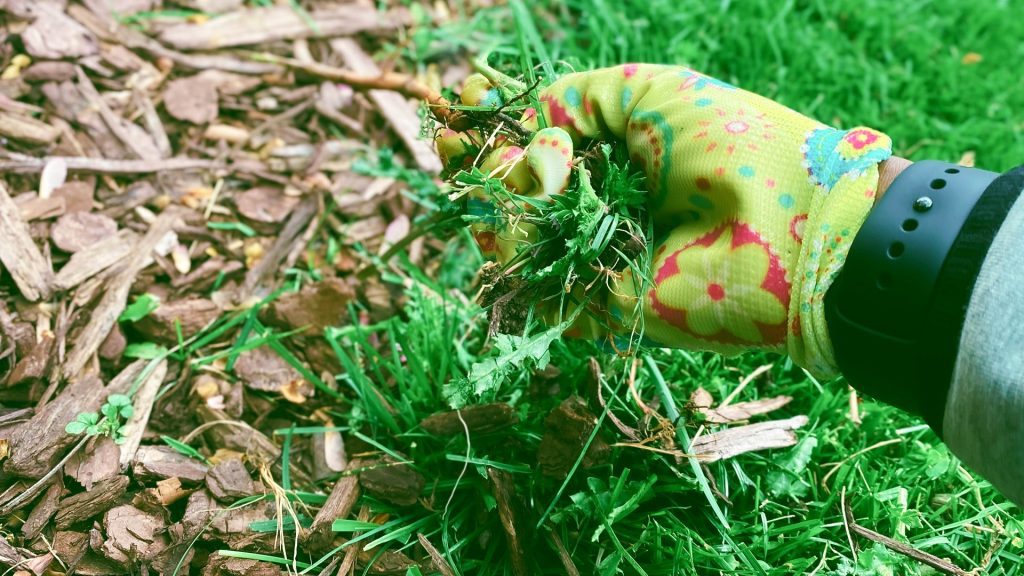
8 Easy Ways to Kill Lawn Weeds Naturally
Weeds are the bane of every gardener, whether you have a thriving vegetable patch or luscious grass to take care of.
Lawn weeds can be particularly stubborn which is why many people opt for a herbicide killer, but if you’re hesitant about using something so harsh, you may want to consider a natural alternative.
What are the best natural weed killers? Some of the most commonly used natural lawn weed killers are boiling water, vinegar, dish detergent, salt, and borax, just to name a few. Most people could find these household items on hand, and they’ll do a good job of treating the weeds on your lawn.
If you want to find out how to remove weeds from lawn naturally, we’ve got a handful of proven methods you can rely on.
They’re gentle on your grass and safe for kids and pets to play on, giving you a win-win situation in the fight against stubborn lawn weeds.
8 Easy Ways to Kill Weeds Naturally
Whether you suffer from allergies, have pets and children enjoying your lawns, or just don’t want to rely on any harsh chemicals in gardening, you might be looking for a natural alternative to herbicides.
These are some of the best natural weed killers to try out that you can feel peace of mind about using.
#1 Boiling Water
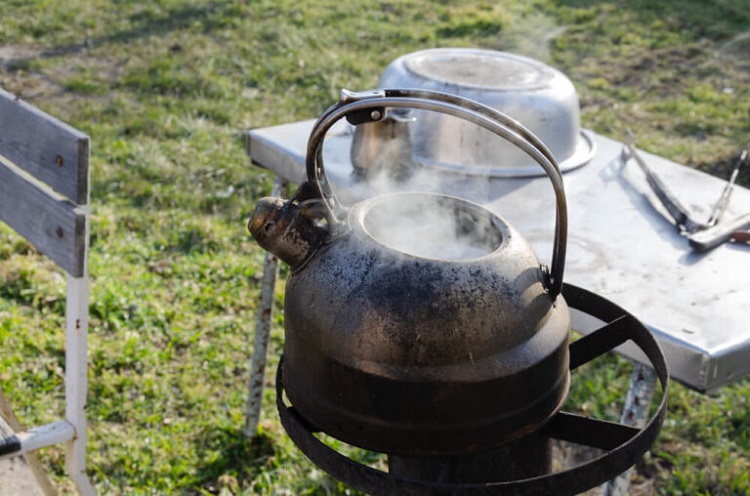
There’s nothing more natural than water, especially for growing plants in the garden, but not many people know it can be used to kill weeds as well.
The difference between watering your lawn to help it grow and killing weeds with it comes from the temperature, as weeds can’t withstand higher temperatures like this and will shrivel up and die.
To use boiling water for burning weeds, fill a kettle with water and boil it, being careful to pour the water, while still boiling, on affected areas and be mindful of your feet.
It’s best to try and target a specific area rather than pouring it all over the grass because the high temperature of the water might do some damage to the surrounding lawn as well.
Once the water has cooled down, you can pull out the weeds easily as the soil will be softened as well. You can leave them there as they’ll be dead, but due to the chance of seeds being left behind, it’s best to remove them.
#2 Lemon
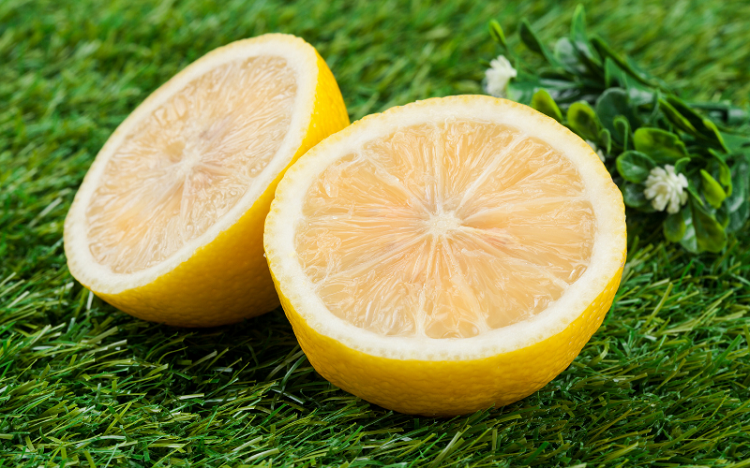
Few things are as naturally acidic as citrus fruits, and who better to help us combat the weeds growing on our lawn?
Lemon is a natural gardener’s dream come true and a simple household ingredient that most people would have on hand to help them get rid of weeds.
Better still, you can use a bottle of lemon juice concentrate if you don’t have the real deal, and the results will still be as impressive.
To kill weeds with lemon, all you need to do is put lemon juice into a spray bottle and soak the weeds with them. You’ll probably have to squeeze a few of them to treat the whole lawn, but it’ll go a long way once it’s in a spray bottle.
The natural acids within the lemon juice will dry the weeds out and they’ll die shortly after, making them a lot easier to pull out.
#3 Newspaper

Treating weeds with newspaper might not be something you ever thought possible, but it’s one of the most effective and gentlest methods available.
Rather than rubbing or spraying this household product onto weeds, it’s used as a barrier to prevent them from growing or getting access to sunlight and water. As an added bonus, the newspaper breaks down eventually without doing any harm.
Even expert gardeners make use of newspaper occasionally, and it’s easy enough for you to do as well. First, you’ll need to mow or cut the weeds using a weed whacker.
Then, lay down sheets of newspaper on top of the grass where they were growing. Any seeds or weed roots left behind won’t be able to keep growing or producing seeds, solving all of your problems.
If you have seriously stubborn weeds, try adding a layer of mulch over the top of the newspaper. This adds some organic matter to the lawn and another level of protection against weed growth, so it has twice the benefits.
#4 Borax
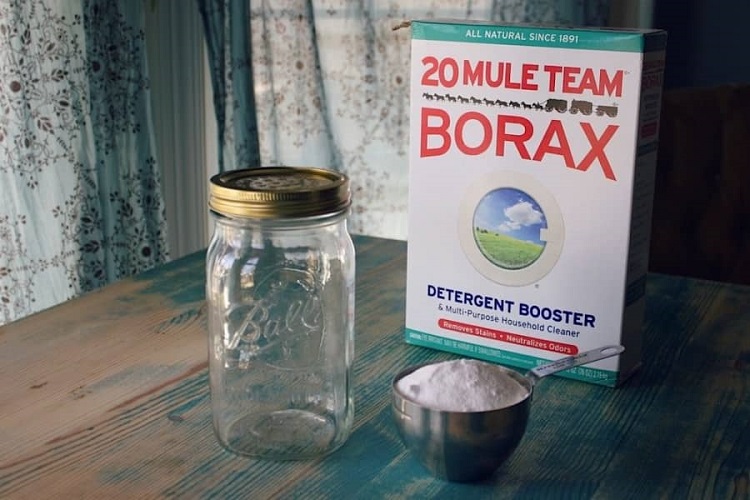
Although not as gentle as other products we’ve found, Borax can be a lot kinder to your lawn than harsh herbicides.
This powdery white substance, commonly known as sodium borate, is found in many household cleaners and it can be quite effective at killing the weeds that have cropped up on your lawn.
To make use of borax in your garden, it’s as easy as mixing it with water, according to the directions on the packaging. You can then spray the new weed killer onto the trouble plants and watch them wither away and die after just a few hours.
The only issue with borax is that it’s non-selective which means it’ll kill all vegetation that it touches. You’ll need to be sure that you’re applying it only to the weeds and not the grass, otherwise, it might make a barren patch on your lawn.
#5 Vinegar
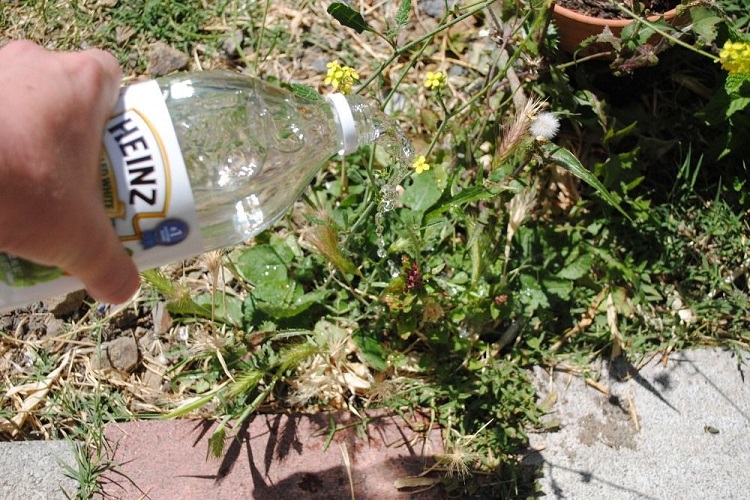
Vinegar is one of the most commonly used ingredients in home cleaning products, and it works just as well in the garden.
The benefits of using vinegar are that it’s cheap, gentle, and won’t damage the soil or grass, so it ticks all of the boxes of what a good herbicide should be.
There are two types of vinegar you can use, including regular household white vinegar, or horticultural vinegar which is a lot stronger.
We recommend trying the household vinegar first as many lawn weeds will respond well to this, and then upgrading if necessary.
To use vinegar as a weed killer for your lawn, fill a spray bottle with it and spray it onto the weed culprits. For more powerful potency, choose a day where the sun is shining bright as this will help to burn and kill the weeds more effectively.
Keep it concentrated and don’t mix it with water for the best results.
#6 Salt
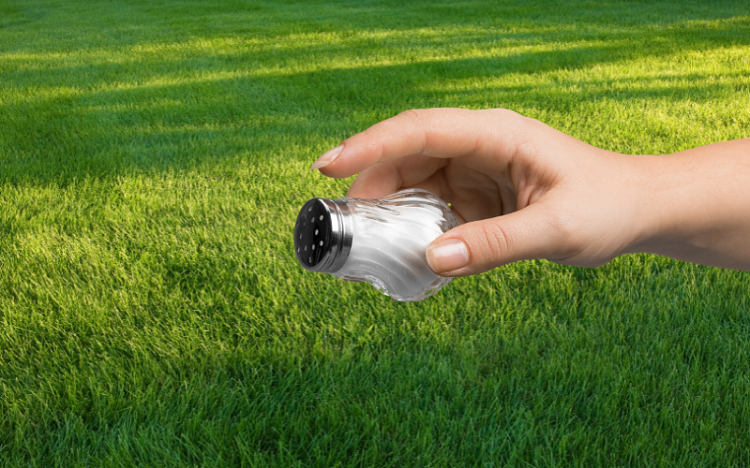
Everyone knows that salting the earth can have disastrous results on whatever plants are growing there, so why not use this power for good?
Salt can be applied as a natural herbicide to get rid of pesky weeds on your lawn and garden, but you have to be careful about how you apply it.
To use salt as a weed killer, it’s as simple as using a container of fine table salt and pouring it directly onto the leaves of the weeds that are bothering you.
Otherwise, you can make a mixture of salt and water and spray that onto the leaves. Just be cautious about spraying it too liberally around the whole garden.
Shortly after, the weeds should wither up and die, and then you pull them out if you want to be sure they won’t return.
As a powerful and corrosive substance, you need to keep salt away from concrete, so don’t put it on your driveways, pathways, or patios.
#7 Dish Detergent
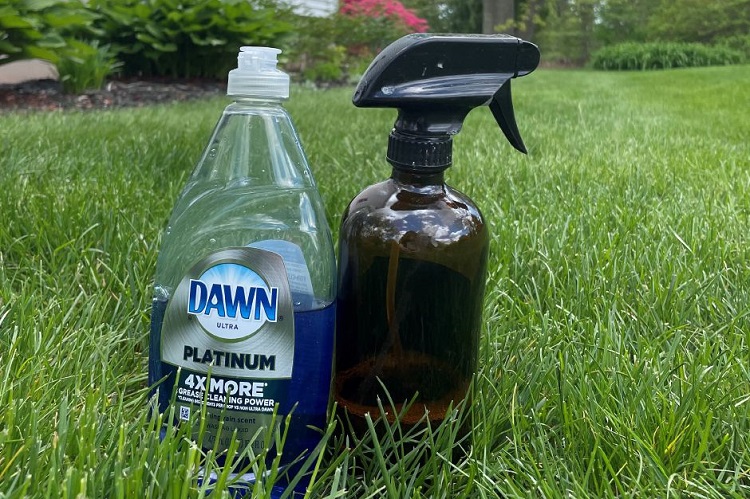
Almost everyone has a bottle of dish detergent handy, and if it’s gentle enough to clean the dishes that we eat off, it’s gentle enough for our lawns.
This old method for treating weeds will work on the easier kind, but if you’re struggling with stubborn growth, you’ll need to add some of the other natural ingredients.
Dish detergent and water can be added to a spray bottle and then sprayed liberally onto the weeds. It won’t do any damage to the surrounding grass and is safe for the soil as well.
If you want to go one step further, choosing an organic dish detergent can give you the peace of mind that you need.
#8 DIY Weed Killer Mix
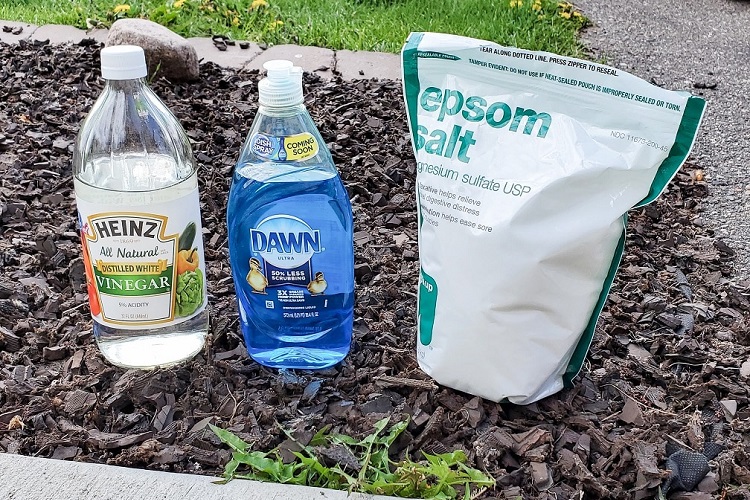
A quick online search for homemade weed killers and you’ll find a host of recipes that make use of the natural ingredients we’ve listed here.
Although effective on their own, they can be even more impressive as a natural herbicide when you combine some of them. These are some of the combinations possible that will make your natural week killer stronger:
- Dishwashing detergent and vinegar: The soap helps the vinegar to stick to the weed and kill it more easily.
- Lemon and vinegar: The acidic nature of the two of these together will make them more powerful.
- Vinegar, salt, and dishwashing detergent: Use it to treat the leaves of weeds and it’ll kill them instantly.
- Salt and lemon: Salt will dehydrate the weeds and the lemon will burn them, so they work together as a powerful duo.
If you do plan on combing a few household ingredients together, always do so with care. Although natural, they can still be corrosive and cause irritation and burns to your skin, so treat them as you would a chemical herbicide.
Tips for Controlling Weeds Naturally
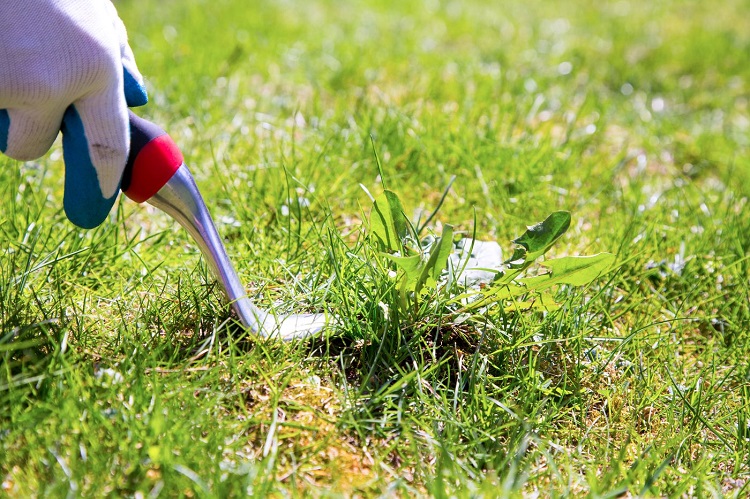
As well as applying natural herbicides, there are other methods you can take to control the weeds in your lawn. Check out these tips for natural weed control that will help get your lawn back in good shape:
- If removing weeds by hand, wait until it’s rained recently or water the lawn and let the soil loosen up. It’ll make it easier to pull them out and ensure that the roots come with them.
- Lay down natural barriers like weed matting or mulch to prevent weed growth. Scattering organic matter onto the lawn can also stop weeds from emerging and it’s great for your grass as well.
- Consider the different grass varieties and choose one that’s suitable for your climate and resistant to weeds. Some grass varieties perform better at weed control which reduces the work for you.
- Try to attack weeds as soon as you notice them, as this will help to prevent further spread. If you’re outside and notice a weed growing, pull it right away.
The Key to Gentle Gardening
Nothing is as effective as a powerful herbicide sprayed onto the lawn when it comes to killing weeds, but this harsh approach might not be right for every gardener.
Thankfully, there are loads of natural methods you can try to kill lawn weeds that are gentle on the grass and gentle on your pets and family.
Related Questions
Weeds are one of the biggest issues that homeowners face on their lawns, but thankfully there’s a wealth of information out there on how to beat them.
If you have questions about the silent killers taking over your beloved lawn, read on for a few other commonly asked ones that can give you some pointers.
Can You Mow Weeds?
Yes, it is possible to mow weeds away temporarily, but you must have a catcher bag attached to your lawnmower if you do.
This enables the weeds and seeds to be caught and disposed of so that they’re not spread around to the rest of your lawn.
How Often Do Weeds Grow?
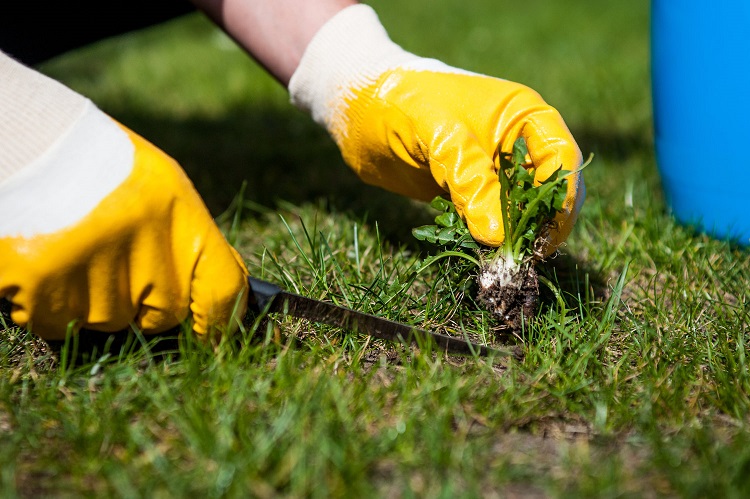
The type of weed on your lawn will dictate how quickly it grows, with biennial being the most common and following a once every two years life cycle.
During the first year, the seed germinates and creates the weed plant, and in the second year, it spreads other seeds to allow it to continue spreading.
Does Winter Kill Lawn Weeds?
When temperatures drop in winter, some weeds on your lawn may be killed, but others will simply remain dormant until it becomes warm again.
Winter perennials are weeds that do better in colder temperatures, and they will continue to thrive during winter if you have them, so you may need to keep up with herbicide application even when it’s cold.
Resources:

